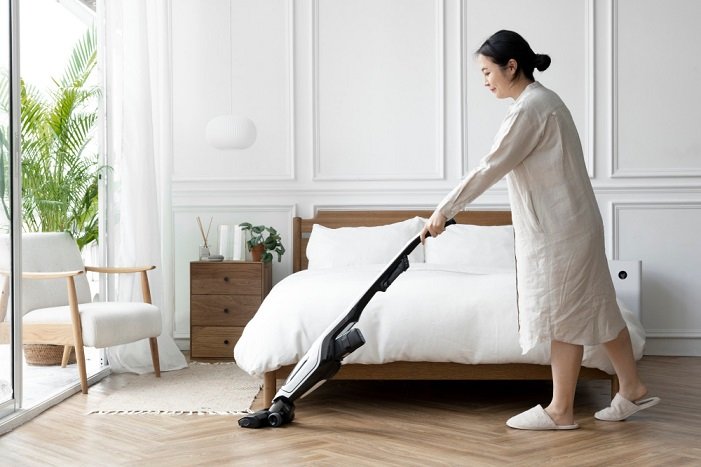The Minimalist Lifestyle: Simplify Your Life for Greater Happiness

In today’s fast-paced world, many people are feeling overwhelmed by clutter, stress, and constant busyness. This is where the minimalist lifestyle comes in—a growing trend that encourages individuals to simplify their lives by focusing on what truly matters. Embracing minimalism can lead to greater happiness, more freedom, and a deeper sense of purpose. Here’s a guide to help you understand the minimalist lifestyle and how you can incorporate it into your own life.
What is Minimalism?
At its core, minimalism is about living with less. It’s a conscious decision to remove unnecessary possessions, distractions, and commitments from your life. Minimalism encourages people to focus on what adds value, whether that’s meaningful relationships, experiences, or passions.
Minimalism doesn’t mean depriving yourself. Instead, it’s about:
- Reducing clutter
- Prioritizing quality over quantity
- Spending time and money intentionally
The ultimate goal is to create more space—both physically and mentally—for things that bring you joy and fulfillment.
Benefits of a Minimalist Lifestyle
- Less Stress and Anxiety Cluttered environments often lead to cluttered minds. By decluttering and simplifying your surroundings, you can reduce feelings of stress and anxiety. A clean, organized space promotes calmness and mental clarity.
- More Time for What Matters When you own fewer things, you spend less time managing them. This means fewer chores, less cleaning, and more time to focus on activities that enrich your life—like spending time with loved ones, pursuing hobbies, or focusing on self-care.
- Financial Freedom Minimalism encourages mindful spending. Instead of constantly buying new things, minimalists invest in quality items that serve a purpose. This leads to savings, reduced debt, and greater financial freedom.
- Improved Focus and Productivity A minimalist lifestyle removes distractions. When you cut out the non-essential, you can direct your energy and focus on the things that truly matter, leading to increased productivity and better decision-making.
- Sustainable Living Minimalism aligns with eco-friendly and sustainable living practices. By consuming less, you reduce waste and your carbon footprint, contributing to a healthier planet.
How to Start a Minimalist Lifestyle
- Declutter Your Space Begin by going through your belongings and letting go of things you no longer need or use. Start small—one room or one area at a time. Donate, sell, or recycle items that no longer serve you. Ask yourself if each item adds value to your life or if it’s just taking up space.
- Be Intentional with Purchases Minimalism is about thoughtful consumption. Before buying anything new, ask yourself:
- Do I really need this?
- Will this item improve my life?
- Can I make do with something I already own?
Prioritize quality over quantity when making purchases. Invest in durable, long-lasting products rather than buying cheap items that need to be replaced frequently.
- Simplify Your Schedule Minimalism is not just about material possessions. It’s also about how you spend your time. Evaluate your daily routine and commitments:
- Are there activities or obligations that don’t align with your values?
- Can you reduce or eliminate tasks that drain your energy?
Focus on activities that bring you joy and align with your goals. Learn to say no to things that don’t contribute to your well-being.
- Digitally Declutter We live in a digital age, and sometimes the clutter isn’t just physical—it’s digital. Organize your devices:
- Delete unnecessary apps, files, and emails.
- Limit time on social media or unproductive websites.
- Unsubscribe from newsletters that no longer interest you.
This digital declutter will help you reclaim focus and reduce mental overload.
- Embrace Experiences Over Things One of the key principles of minimalism is valuing experiences over material possessions. Instead of spending money on items, invest in experiences that create lasting memories—whether that’s traveling, attending events, or simply spending time with loved ones.
- Create Mindful Habits Minimalism goes hand-in-hand with mindfulness. Practice being present in the moment and avoid multitasking. Whether it’s enjoying a meal, spending time with family, or working on a project, give your full attention to what’s in front of you.
99math is an engaging, interactive platform that makes math learning exciting through real-time, multiplayer games. Students can practice essential skills such as addition, subtraction, multiplication, and division while competing against others in a fun and fast-paced environment.
Teachers can easily set up custom games to match their curriculum, providing a dynamic and adaptable tool for classrooms or home learning.
99math fosters a love for math by turning practice into a game, helping students improve their skills, boost their confidence, and stay motivated to learn.
Minimalism Myths: What It’s Not
- It’s Not About Deprivation: Minimalism is not about denying yourself things you enjoy. It’s about removing distractions to make room for what truly matters.
- It’s Not a One-Size-Fits-All Approach: Everyone’s version of minimalism is different. Some people might live with very few possessions, while others may focus on simplifying their schedules or digital lives. Minimalism is about what works for you personally.
- It’s Not Just About Aesthetics: While minimalist design tends to be clean and simple, the lifestyle is more about intentional living than having a perfectly arranged home.
Conclusion
The minimalist lifestyle offers a way to strip away the excess in your life so that you can focus on what truly matters. By embracing minimalism, you can reduce stress, gain more time, improve your focus, and live a more intentional, fulfilling life. Whether you start by decluttering your space, simplifying your schedule, or cutting down on digital distractions, minimalism is a powerful way to create a more meaningful and balanced life.


